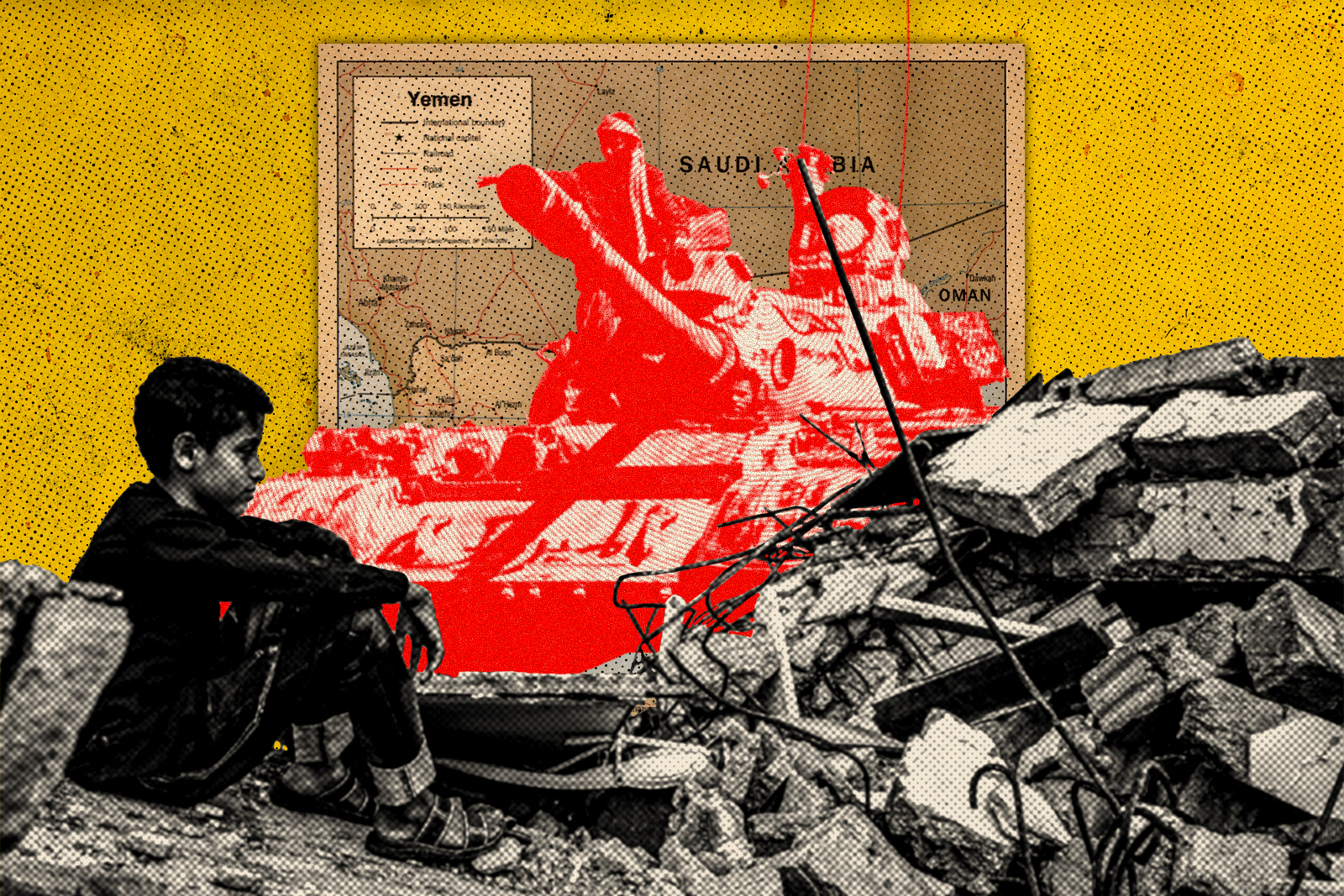
The Trap of America’s Military Solution in the Red Sea
The chessboard of global politics has, once more, been knocked askew by the deft yet forceful hand of the United States. A new frontier has emerged in the Red Sea, where the specter of military intervention casts a long shadow over the tumultuous waters. Here, the United States, a nation as renowned for its Silicon Valley innovations as for its Pentagon strategies, has yet again flexed its military muscle. Instead of courting peace, it has chosen to show strength, to counter not with dialogue but with might, ensnaring its allies in the quagmire of its ‘might makes right’ doctrine—adventures that history will note have often ended in strategic retreats, leaving allies to bear the burdens of a more fractured and volatile landscape.
Amid the cerulean waves of the Red Sea, the current crisis unfolds. Here, the Houthis have emerged not only as a group propelled by political grievances but as the latest target of Washington’s militarized foreign policy playbook. This approach has manifested in a quixotic quest to marshal a naval coalition, a move that ignores the root causes of the Houthis’ insurgency and seems only to assure an escalation of hostilities in an already restive region.
Washington’s reliance on military solutions is a recurring leitmotif, underscored by a belief that its arsenal is the cornerstone of its supremacy. Such a paradigm has dictated its hand, a predilection for the saber’s rattle over the diplomat’s parley. This predilection has been evident across the deserts of Afghanistan and Iraq, where peace and nation-building were eschewed in favor of conflict. In Afghanistan, the myopic focus on combating the Taliban, far from eradicating them, has inadvertently emboldened them, conferring a semblance of legitimacy and resilience. Iraq, following the fall of Saddam Hussein, has been plunged into an abyss of sectarian strife and bloodshed, yielding a toll of human life that numbers in the hundreds of thousands and a landscape scarred by the ravages of war.
In the Taiwan Strait, the U.S. strategy of military support has intensified the island’s security dilemma, sharpening the Chinese Communist Party’s threat perception and edging historical tensions closer to military escalation. Similarly, in Ukraine, U.S. policies have been accused of overlooking Russian security apprehensions, contributing to the ignition of a far-reaching conflict with profound repercussions for Europe.
These interventions have consistently raised concerns among American allies about the sustainability of U.S. support, fostering a climate of uncertainty in the face of potential abandonment. Each scenario underscores a recurring pattern: the complex interplay of military engagement over diplomatic dialogue, with lasting implications for regional stability and international relations.
The U.S. has often been at the center of turning political disputes into military engagements. In Afghanistan and Iraq, U.S. military-focused strategies led to unintended consequences: strengthening the Taliban and sparking sectarian violence, respectively. Taiwan’s armament has heightened tensions with China, risking military escalation. U.S. actions in Ukraine have contributed to a significant European conflict. These actions have left allies concerned about potential U.S. withdrawal and the enduring costs of militarized policies.
Over the years, the United States has consistently augmented Israel’s military arsenal with increasingly sophisticated weaponry, a move that critics argue sidesteps the underlying issues of the Israeli-Palestinian conflict. This bolstering of Israel’s military capacity has been perceived as shifting the balance of power and contributing to more assertive Israeli policies, which in turn exacerbate Palestinian grievances and hostility.
In the wake of the October 7 attacks by Hamas, the U.S. has escalated its support, exemplified by the deployment of an aircraft carrier and a significant influx of arms to Israel. Moreover, the U.S. is actively working to assemble an international coalition to address the Yemeni Houthis’ assaults on maritime vessels associated with Israel, particularly in the strategic maritime corridors of the Red Sea and the Bab al-Mandab Strait. Critics argue that these actions perpetuate a cycle of retaliation and conflict, questioning the efficacy of such a strategy in achieving long-term peace and stability in the region.
The United States’ military strategy in the Middle East has encountered resistance from key European allies and Arab nations. These countries criticize the U.S. approach as simplistic and biased, arguing that it exacerbates ongoing cycles of violence and tension in the region. They contend that the so-called “Axis of Resistance” and the Houthi maritime attacks are, in part, repercussions against what they view as the inequitable treatment of Palestinians.
Despite recognizing security concerns in the Red Sea, these nations have refrained from participating in the U.S.-led naval coalition against the Houthis. Their stance is that military action against the Houthis may only widen the conflict. Instead, they advocate for addressing the core of the region’s unrest: seeking an equitable resolution to the Palestinian issue, which they believe is central to achieving broader peace and stability.
The United States’ strategy in Middle Eastern politics is under scrutiny for sidelining the preferences of its European and Arab allies, who advocate for diplomatic pressure on Israel to recognize a sovereign Palestinian state. Instead, the U.S. has prioritized the fortification and securitization of regional conflicts—a domain where it excels, albeit with a strategy criticized for its shortcomings and potential pitfalls for its international partners.
Allies view the military stance against the Houthis not as a solution but as a misdirection from the core political and regional issues that catalyze Houthi actions. Due to previous misadventures in places like Afghanistan and Iraq, European nations are wary of repeating past mistakes. This caution is the crux of their reluctance to engage in what they perceive as another precarious U.S. undertaking with a predictable outcome.
